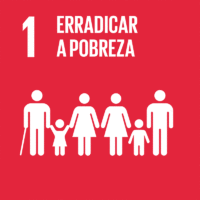Ciência_Iscte
Publicações
Descrição Detalhada da Publicação
Título Revista
Journal of Policy Research in Tourism, Leisure and Events
Ano (publicação definitiva)
2022
Língua
Inglês
País
Reino Unido
Mais Informação
Web of Science®
Scopus
Google Scholar
Esta publicação não está indexada no Overton
Abstract/Resumo
The pandemic resulting from COVID-19 disease has brought about an unprecedented crisis to tourism destinations, resulting in an almost complete shutdown of tourist flows. Whereas disaster recovery models focus on prevention and preparedness, the post-pandemic recovery strategies are underexplored, particularly in relation to the highly representative group of small-scale businesses run by tourism lifestyle entrepreneurs (TLEs). An integrated framework for Destination Marketing Organization (DMO) strategic thinking is developed using the Delphi method with Q-sort technique. Findings from a 26-element expert panel emphasize the priority of creating a favorable environment for small-scale business development and supporting the provision of resources and capabilities. After this initial effort to strengthen these fragile businesses, it is essential to increase their communication capacity, a common limitation of TLEs, allowing these entrepreneurs to access niche markets more suited to the business and lifestyle they run. With stronger businesses, DMOs can enhance destination competitiveness and innovation, stimulating cooperation and networking.
Agradecimentos/Acknowledgements
--
Palavras-chave
Covid-19,Recovery strategies,Entrepreneurship,DMO,Destination Competitiveness
Classificação Fields of Science and Technology
- Economia e Gestão - Ciências Sociais
Referências nos Media Relacionadas
Esta publicação está associada ao(s) registo(s) de referências nos media seguinte(s):
Contribuições para os Objetivos do Desenvolvimento Sustentável das Nações Unidas
Com o objetivo de aumentar a investigação direcionada para o cumprimento dos Objetivos do Desenvolvimento Sustentável para 2030 das Nações Unidas, é disponibilizada no Ciência_Iscte a possibilidade de associação, quando aplicável, dos artigos científicos aos Objetivos do Desenvolvimento Sustentável. Estes são os Objetivos do Desenvolvimento Sustentável identificados pelo(s) autor(es) para esta publicação. Para uma informação detalhada dos Objetivos do Desenvolvimento Sustentável, clique aqui.

 English
English




